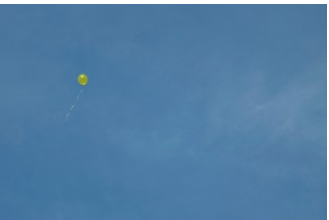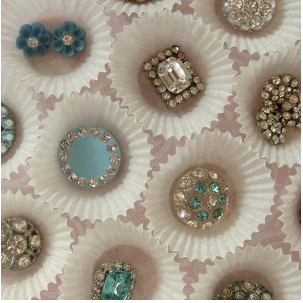
I found an alley I hadn’t spotted before and heard sounds of jollity at the end of it. I walked down and round and came upon a primary school fair in full swing. This could only mean one thing: a secondhand book stall. In fact, that particular thing proved to be unremarkable but there was, right next to it, a stall selling beer and wine. For the encouraging schoolyard price of £2 I got a plastic cup of prosecco and dealt with it.
I strolled to the next street and found that it had been closed off and filled with stalls – another fair. But it isn’t a fair. It’s a street food festival where, instead of pleasing variety it’s types of snack on tables. Foods, as far as the eye can see down this packed street. Many cupcakes. Just think, every cupcake is different but not in an interesting way. The cupcake is very easy to make. Six year olds can make them and so can thirty year olds, it would appear. Toddler foods by British bakers. Just how many food stalls do you need before a street event becomes nothing more than the contents of victuallers’ shops moved into the street? At the farmer’s market you can get a rabbit or a swede and take them home. At the restaurant you can get courses. But what if all you could get at Borough Market or Smithfield were dainties? What if the restaurant only had afters on the menu?

How many times can you eat when the only diversion from eating is eating? Could you have lunch several times so as not to waste the opportunity? Surely a fair or a ‘festival’ has more than one type of thing in it. Surely once 90% of the available street-side space has been taken up by over-priced delicacy outlets, room should be made for tray after tray of over-priced jewellery. Ah! On closer inspection it becomes apparent that for every ten food stalls there is a ring and bauble stall whose proprietor will say “This is a very nice piece” to anybody about anything. Anyway, I don’t drive a 4×4 so I’m not really in the target constituency. When I was a boy you could see a pig with two heads. Can’t say fairer than that.
I escaped down a leafy side street, passing a group of people sitting on a low wall in front of a house, chatting in the sun. A boy of about five was playing in the background. I strolled on but flinched then froze as I heard a loud crack behind me.

I swung round and the scene had completely changed. In slow motion the adults on the wall were rising to their feet and gazing in horror at the space where the boy had been. A large sheet of wired glass, broken in several places, was sliding down into the cellar whose access shaft it had been covering. The boy had climbed onto the glass and it had instantly shattered. The glass crunched into the space below. Onto the boy. A big man ran across to the shaft, peered down then lowered himself in. A woman screamed, leaped to her feet and desperately cried “Sam!” over and over. From the shaft the man shouted “He’s okay! He’s okay!” The man emerged holding the boy in his arms. His mother took him. The boy started to cry. It was clear he wasn’t hurt but just beginning to realise what a shocking thing had happened to him. The man stroked his head and murmured something reassuring. It was over. I had tears in my eyes.
Moved by the heroism of the big man, wondering what I would have done if one of my kids had been so shockingly swallowed.

Strolling down another alley, one I knew, I saw a man at a table with a boy on his knee. The boy had just let go of a balloon and was getting ready to wail. The balloon moved in an upward diagonal across my path. It was about three paces ahead. By the time I reached it, maintaining a steady pace, it would be eight feet above my head and somewhat to the right. I became calm and I focused myself. To my left the father was rising slowly. Grasping the balloon was out of the question, only a basket-ball player would be capable of this and there was every possibility he would burst it.
Even as the way became clear my left hand, the one I am best with, shot, with serpentine certainty, towards that trailing tendril. Smuh! went my fingers around it. We were just about to have a situation there said the father. I smiled. As I made my way away I heard
Who was that man?
No one knows.
Does he seek reward?
No. He seems to be content with just the deed. Soon we will forget him. He will be like tears in rain.
That’s lovely.
At the far end of the alley were piles of used books and fabrics – curtains, doilies, valances and the like. I spotted a pale green towel. I needed one. It’s a very nice one the man there said. It was. It was in terrific condition. The man said it was £2. Apparently, moreover, it was new.
Then I saw Kenneth. There was no mistaking him: the white goatee, the bow tie, the challenging twinkle in his eye. He was a close friend of my father and had died about twenty two years ago. And now there he was in the street. When I was a little boy in the fifties Kenneth used to come round for supper. Unlike the other biochemists he talked about books and music in addition to amino acids and when greeting my mother would kiss her on the cheek, which she found unsettling. She said He’s a bit flamboyant.

Biochemists in the fifties were dour and polite but Kenneth laughed loudly and was strongly opinionated. At a party in his garden, this would be in the early 80s, after he had married my second cousin Doffy, the biochemists were discussing a strange new disease – more of a syndrome at this stage – that patients had been presenting in Los Angeles. It seemed to attack the immune system, was one line of thinking, insofar as the sickness seemed to comprise a number of pathologies at the same time. The people suffering from these odd symptoms were mostly homosexuals, particularly those who regularly visited the bathhouses where men would have sex with other men. The point was, the men were starting to die.

One of the biochemists, a young Italian, had been on a field trip to the bathhouses to talk to some of the men there. He told his colleagues at Kenneth and Doffy’s party that some of the men had as many as twenty sexual partners per night. The biochemists were startled to hear this but instead of disapproving they nodded ruminatively. The young Italian said that the men often used cocaine and amyl nitrite to heighten their sexual experiences. One of the biochemists wondered if their immune systems had been compromised by an assaultive drug diet.
Kenneth was listening to this discussion and said something that I have never forgotten. “Well, if this is going to be some sort of plague then it might solve the population problem. If you look at Africa, immune systems there are under constant attrition. A massive plague would solve a lot of problems.” He wasn’t suggesting that homosexuals might be usefully wiped out, just continentsful of people. It struck me that I might have misread that goatee.
Next door to Pizza Express there was a proper secondhand book shop. An Oxfam, in fact. And there, in the window, right at the bottom of a pile of books stacked spine out, was a book I’d had on the wish list for only a few days. Consonant with my career in the experimental arts I had always maintained a snobbish disdain for the work of Stephen King. “That’s one writer I won’t be reading,” I had thought. But then I read a number of warm reviews for ’11/22/63′, in which the period leading up to the assassination of Kennedy is visited by a traveller from 2011. The New York Times said ‘It all adds up to one of the best time-travel stories since H. G. Wells. King has captured something wonderful. Could it be the bottomlessness of reality? The closer you get to history, the more mysterious it becomes. He has written a deeply romantic and pessimistic book. It’s romantic about the real possibility of love, and pessimistic about everything else.’ (Errol Morris 10/11/2011).

Hefty at 849 pp but a snip at £1. Where better to examine it than Pizza Express? First I read the paper for a bit then I turned my attention to the doorstop in my bag. As I opened the bag I caught sight of an upside down word on the back cover of the book. Something like ‘myos’. Suddenly the room was quiet. The chatter and the bustle just fell away. I flipped the book open and it was in Swedish. I had taken home a Swede. Fuck. No wonder it was cheap. As luck would have it I passed another Oxfam. I told the man what had happened then kindly donated the book to his cause. I said “I don’t suppose you have one in English by any chance?” He said he was afraid not.
Some of the instructors had mixed groups of teenagers and adults but Olly, on this particular morning, the sky sullen but the waves regular, unlike the other day, had some really quite young ones to look after. I was standing out that day, because my ribs hurt so much, but my girls were in there, in another group, doing pretty well, standing up more and more. In Olly’s group there were maybe three small girls and three small boys. Each time one of them launched into a wave Olly would shout encouragement, clap his hands and laugh in celebration. A big, genial Australian, he wore a straw hat in the morning when hanging out the wet suits and now, standing among the breaking waves, had a peaked cap. It can get very tiring falling off or rolling off your board over and over and there’s not much you can do about that. But if you’re a little kid and Olly is your instructor then he will do this excellent thing. There’s a kid just coasted into the shallows, lying flat on his board and Olly wades forward, grasps the board on both sides and picks it up with the kid still on it. He then wades back to the waves, turns the board with the kid on towards the beach and launches him.



